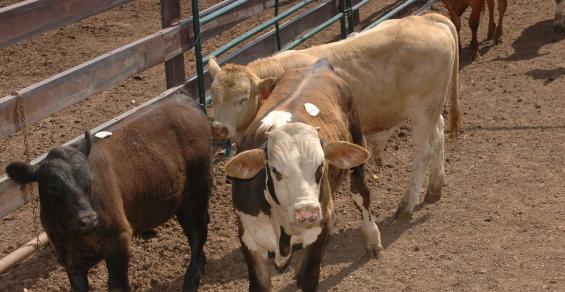At long last, the controversial GIPSA interim final rule that would have given the government greater oversight on how livestock could be marketed is put to rest. USDA made a Federal Register announcement this week that it will withdraw the rule.
It’s been a long, drawn-out, divisive and controversial battle since 2010 when the rule was first proposed. Along the way, it died, came back to life and now it looks like it has gasped it last breath.
The news was welcomed by major national beef and agriculture organizations.
“This is a victory for America’s cattle and beef producers – and it’s a victory for America’s consumers,” said Colin Woodall, NCBA senior vice president, government affairs.” Agriculture Secretary Sonny Perdue deserves a great deal of thanks and credit for this smart decision.”
Woodall said the proposed rule would have crippled cattle producers’ ability to market their products through the value-added programs that help make American-produced beef the most delicious and nutritious in the world. “This is a decision worthy of celebrating this evening with a top-quality steak.”
The Farm Bureau and the National Pork Producers Council (NPPC) were among the other groups that added their voices to the praise given USDA for the move.
Included in this regulatory rollback are an interim final rule that deals with harm to competition and one proposed rule on conduct considered an unfair practice or results in an undue preference, both of which livestock and poultry producers have long opposed. The effective date for implementation of the interim final rule was scheduled for Oct. 19, according to a statement from the office of U.S. Senator Pat Roberts, (R-Kan.), chairman of the Senate Committee on Agriculture, Nutrition, and Forestry.
“Today, rural America has received long-awaited good news,” said Chairman Roberts. “In the heartland, farmers and ranchers applaud the rollback of the GIPSA rules.”
One of the greatest concerns of GIPSA rule opponents is that it would open the gates to a flood of litigation. “The interim final rule would have broadened the scope of the Packers and Stockyards Act (PSA) of 1921 related to using ‘unfair, unjustly discriminatory or deceptive practices’ and to giving ‘undue or unreasonable preferences or advantages,’ according to NPPC. “Specifically, it would have made such actions per se violations of federal law even if they didn’t harm competition or cause competitive injury, prerequisites for winning PSA cases.”
“Eliminating the need to prove injury to competition would have prompted an explosion in PSA lawsuits by turning every contract dispute into a federal case subject to triple damages,” said NPPC President Ken Maschhoff. “That would have reduced competition, stifled innovation and provided no benefits to anyone other than trial lawyers and activist groups that no doubt would have used the rule to attack the livestock industry.”
An Informa Economics study found that the 2010 GIPSA Rule today would have cost the U.S. pork industry more than $420 million annually – more than $4 per hog – with most of the costs related to PSA lawsuits brought under the “no competitive injury” provision included in the interim final rule.
While I haven’t seen any figures, it’s reasonable to assume a similar scenario in the beef business.
However, other groups were disappointed in the announcement.
According to U.S. Cattlemen’s Association (USCA) President Kenny Graner, “USCA is disappointed in today’s announcement. The proposed and interim rules sought to maintain competition in the marketplace; withdrawing the rule is a win for multi-national packers and fails to put U.S. cattle producers first.
“USCA has been committed to seeing through necessary clarifications to the Packers and Stockyards Act and a withdrawal of the rule does not solve the problems in today’s marketplace. Anti-competitive buying practices and the lack of true price discovery remain critical issues to our industry and ones that must be addressed.”
Graner is correct that the beef business, as well as other sectors of protein production, have issues that need to be addressed. But doing so in a courtroom or with intrusive government regulations isn’t the way to solve what ails us.
USDA’s move to withdraw the controversial rules is good news for the beef business. Now it’s time to move forward and, as an industry, work internally to better ourselves. Let’s leave the government and the judicial system to worry about other things.




Leave A Comment